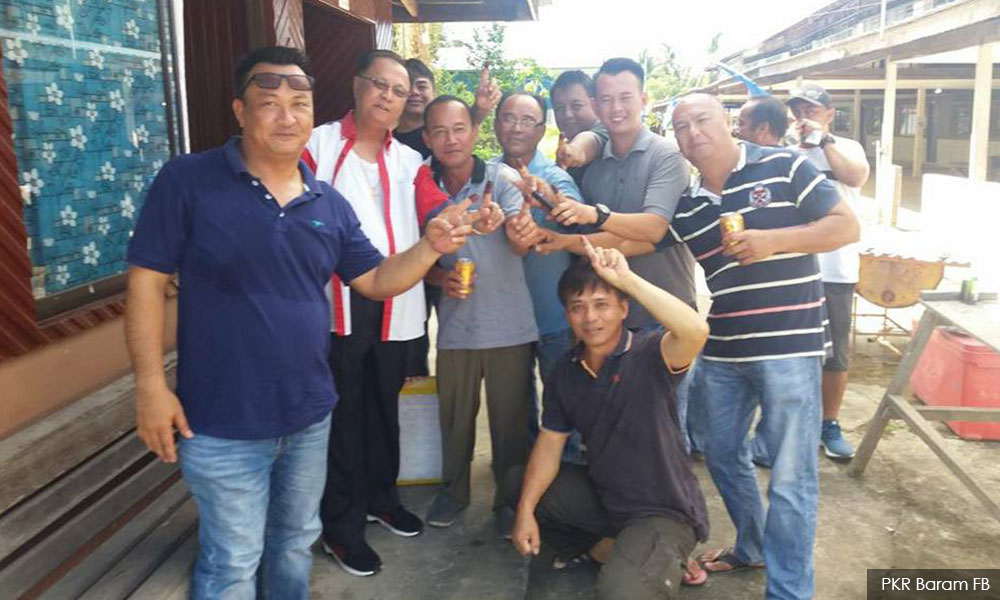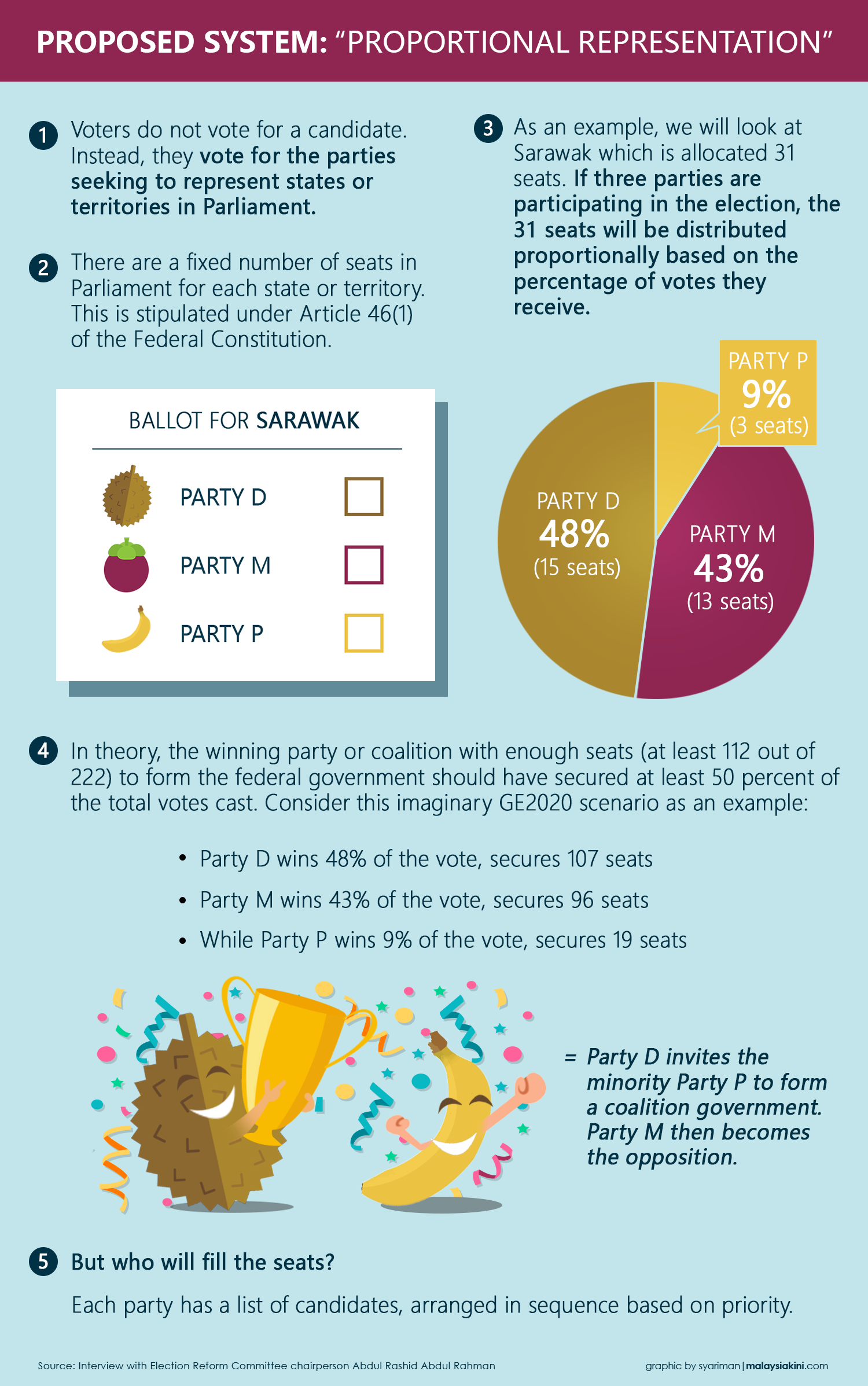Here's a fact that many people will find hard to accept. Pakatan Harapan won in 2018 due to a flawed electoral system.
It's not because they won the most votes, or were the most popular. They were just lucky that BN decided to have PAS as a third option and the split votes happened to favour Harapan in several seats.
And with the next general election set to become a bout among four coalitions, these flaws could likely hurt newer parties such as Muda.
If you're not clear how elections in Malaysia work, we use the first-past-the-post (FPTP) system.
In this system, it is not who has the most votes to win. Rather, who comes in first place wins.
Let's imagine how an election in a mixed constituency with 10,000 voters and four coalitions contesting will turn out.
In this scenario, BN gets 3,000 votes, Harapan 2,400, Perikatan Nasional 2,100, and Warisan Plus (including Muda and Pejuang) 2500 votes.
Under FPTP the winner is BN, despite only getting 30 percent of votes, meaning a party that 70 percent of voters did not choose will represent them.
This is what happened in 2018 when Harapan won just 45.68 percent of the votes.
It was the largest bloc, sure, but the majority of voters (54.32 percent) did not vote for Harapan. It was not the people's government, no matter what people in the Klang Valley and Penang would like to insist.

The solution seems simple then, right? The majority should just set their differences aside, and back one coalition.
Unfortunately, we live in the real world, and this is an extremely tall order, especially with the hyperpolarised politics that currently dominate Malaysia.
FPTP forces voters to make "strategic choices", so voting for a small party they support ideologically may not be a choice
The only real solution is to change our election system.
There are several viable alternatives to FPTP that can be implemented in Malaysia.
The first is the proportional representation (PR) or party-list system that was mooted by the Election Reform Committee (ERC) when Harapan was in power.
Under this system, there won't be any constituencies. Voters will instead vote for parties and the share of seats will then be divided proportionally, depending on the number of seats available.
For example, Johor has 56 seats.
If at the end of voting, BN has won 35 percent of votes, Harapan 30 percent, Warisan Plus 20 percent, and PN 15 percent, the seats will then be divided accordingly.
In this scenario, BN will get 20 seats, Harapan 17, Warisan/Muda 11, and PN 8 seats, and the representatives will be based on a list of candidates put up by each party in chronological order.
Since no single party got 50 percent of votes, the parties can then work out post-election alliances in order to form a government.

Under such a system, voters can choose to back small parties like PSM, or Sarawak's Parti Bumi Kenyalang, and be confident that there is a chance that they can get representation, even if it's a single seat.
Another option is the alternative vote (AV) system.
Simply put, you get to vote for multiple parties or candidates, in order of who you like more - and votes from the losers get transferred to their second choice and so on until someone gets a 50 percent majority (roughly).
So. for example, you can vote for Harapan as your first choice and Warisan Plus as your second choice.
If Harapan comes in third or last place in a four-horse race, and no one has crossed the 50 percent mark, then your votes will get transferred to Muda.
This may give Muda a chance to cross the 50 percent mark.
Such electoral reforms are urgently needed as Malaysian politics gets more crowded than ever.
It's not impossible for four coalitions (five in Sabah and Sarawak) to contest the next general election, and if FPTP is maintained, many voters will be denied their choices. - Mkini
ZIKRI KAMARULZAMAN is a member of the Malaysiakini Team.




No comments:
Post a Comment
Note: Only a member of this blog may post a comment.